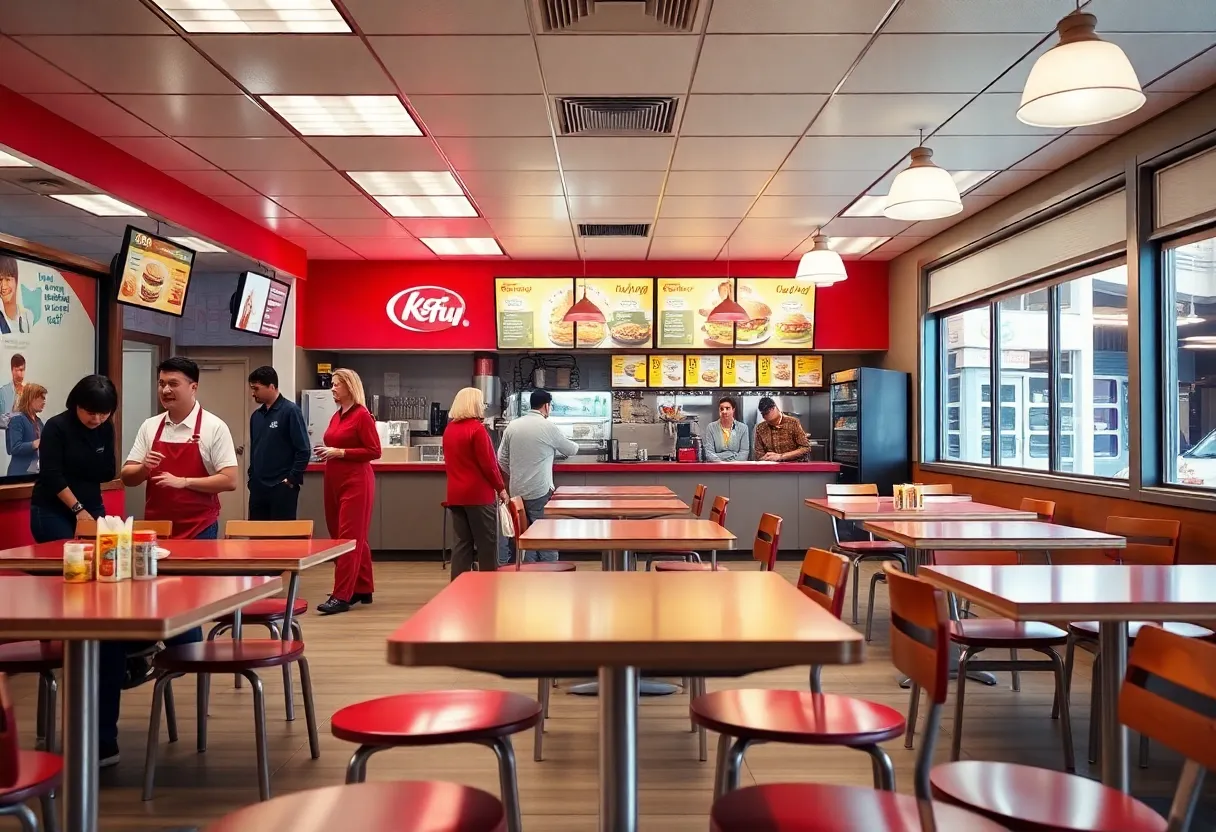News Summary
A study by the National Bureau of Economic Research reveals that California’s recent $20 minimum wage increase for fast-food workers has caused a loss of approximately 18,000 jobs, marking a 3.2% decline in employment within the sector. The report contrasts the job losses in California with modest gains in similar sectors across other states. The findings have sparked debate among policymakers, with critics concerned about the adverse employment impacts, while supporters advocate for fair wages. Ongoing analysis will be required to understand the broader implications of this wage policy.
California, April 2024 – A comprehensive study conducted by the National Bureau of Economic Research (NBER) indicates that the recently implemented $20 minimum wage for fast-food workers in California has resulted in the loss of approximately 18,000 jobs in that sector. This translates to a 3.2% decline in employment within California’s fast-food industry, contrasting sharply with growth observed in similar sectors across other states.
The research, authored by scholars Jeffrey Clemens, Olivia Edwards, and Jonathan Meer, posits that these job losses would not have occurred had the minimum wage increase not taken place. Since the implementation of the wage hike on April 1, 2024, fast-food employment in California has significantly contracted, while the same industry in other U.S. states has seen a modest gain of about 0.10%. The declines in California’s fast-food sector have varied, with reported decreases ranging from 2.3% to 3.9% post-enactment of the new wage law.
The origin of the $20 minimum wage can be traced back to California Assembly Bill 1228, passed in September 2023. This legislation not only established the Fast Food Council in California but also delegated the power to set and modify minimum wages in the fast-food industry. The new wage marked a considerable increase from the previous minimum of $16 per hour. Notably, before the law’s adoption, California’s fast-food sector was following a growth trajectory similar to that of the national market.
Critics of the wage increase have raised concerns that the hike may adversely impact employment opportunities. Historical examples are cited where wage controls failed to yield the desired economic outcomes. In contrast, California Governor Gavin Newsom has championed the minimum wage law, framing it as a progressive move aimed at promoting fair wages and enhancing the bargaining power of fast-food workers.
Governor Newsom’s deputy communications director has voiced skepticism regarding the conclusions of the NBER study. The official indicated that the research is associated with a think tank that has faced allegations of disseminating misleading information in the past. In a related discussion, a study conducted by a professor at UC Berkeley suggested that workers covered by the minimum wage increase experienced pay raises of 8-9% without any corresponding negative effects on the employment of non-covered workers. This counters claims from the NBER findings regarding adverse employment impacts.
Furthermore, it has been reported that menu prices increased by an average of just 1.5% following the wage hike, which may reflect a minimal effect of the wage increase on consumers. It is also important to note that the implementation of AB 1228 exempted small fast-food chains with fewer than 60 locations, which could have implications for the overall employment effects in the state’s market.
An additional consequence of the wage increase has been a decrease in the median weekly hours for fast-food workers. This reduction translates into considerable annual income losses for affected individuals, further highlighting the complex implications of the wage adjustment. Although the broader employment trends in California have remained largely consistent with those observed nationally, the changes within the fast-food sector present a noteworthy deviation from this trend.
In conclusion, while the $20 minimum wage was intended to bolster the livelihoods of fast-food workers, the fallout—especially in terms of employment losses—presents a critical area of concern. Understanding the broader implications of this policy will require ongoing analysis as California grapples with the intersection of wage policy and employment dynamics in the fast-food industry.
Deeper Dive: News & Info About This Topic
- Fox Business: Study Shows California’s $20 Minimum Wage Hike Cost State 18,000 Jobs
- Wikipedia: Minimum Wage
- Davis Wright Tremaine: California Wage Increases July 1, 2025
- Google Search: California Minimum Wage Hike
- Wall Street Journal: California’s Minimum Wage and Job Losses
- Google Scholar: California Minimum Wage Impact
- California Employment Law Report: Preparing for Minimum Wage Increases
- Encyclopedia Britannica: Minimum Wage
- USA Today: Minimum Wage Increase on July 1, 2025
- Google News: California Minimum Wage 2025








